Ambassador News
by Program Director Thulani Makhalanyane
December 2022
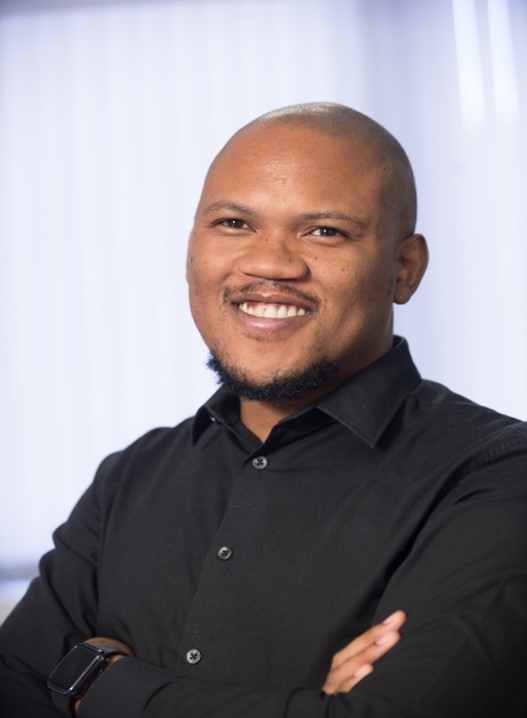 Dear ISME Members, I am delighted to share with you some exciting updates on the ISME Ambassador Program. As you will know, the Program was reinvigorated under the leadership of former Director Nicole Webster and aims to promote the work of the society. The program aims to engage with scientists and researchers in the field of microbial ecology, and we have a strong drive to increase the participation of underrepresented groups.
Dear ISME Members, I am delighted to share with you some exciting updates on the ISME Ambassador Program. As you will know, the Program was reinvigorated under the leadership of former Director Nicole Webster and aims to promote the work of the society. The program aims to engage with scientists and researchers in the field of microbial ecology, and we have a strong drive to increase the participation of underrepresented groups.
Ambassadors work with national and regional microbiology societies to promote ISME and develop the field of microbial ecology. In 2022, the program had over 100 Ambassadors including 31 early career Ambassadors.
I am thrilled to announce that we have welcomed five new ambassadors to the program: Prof. Chioma Chikere (Nigeria), Prof. Stephanus Venter (South Africa), Dr. Sigitas Šulčius (Lithuania), Prof. Raeid Abed (Oman), Dr Aashish Jha (UAE) and Prof. Vivian Pellizari (Brazil). These dedicated microbial ecologists bring a wealth of experience and expertise to the program, and we are excited to have them on board. Short profiles of our new ambassadors are available below, but you can find out more about our ambassadors and their work by visiting our website.
In addition to our new ambassadors, I am also pleased to report that the program has continued to grow. We have organized several successful events and workshops. In August, Nicole Dubilier (Past-President) recognized one of our Ambassadors (Prof. Rup Lal from India) with an award for their services. A message from Rup is included with this newsletter and you can find links to reports from activities supported by ISME on our website.
One of our key goals for the coming year is to expand the reach of the program and to engage with even more scientists and researchers. We are currently working on a number of initiatives, including the development of new educational resources and the organization of more workshops and events. We welcome your ideas on how the society can better support our members.
If you would like to connect with one of our ambassadors, you can do so by visiting our website and finding the ambassador for your region. If there is not currently an ambassador in your region, we are always looking for nominations for new ambassadors. If you wish to nominate someone for an ambassador position, please contact me directly via e-mail.
In addition to expanding our current programs, we are also excited to announce that we will be supporting regional programs in 2023. These programs will provide opportunities for local engagement and networking, and they will help to promote the work of the ISME in different regions around the world.
I want to take this opportunity to thank our ambassadors for their hard work and dedication, and I look forward to continuing to work with them to promote the important work of the ISME and the field of microbial ecology.
Meet the Ambassadors
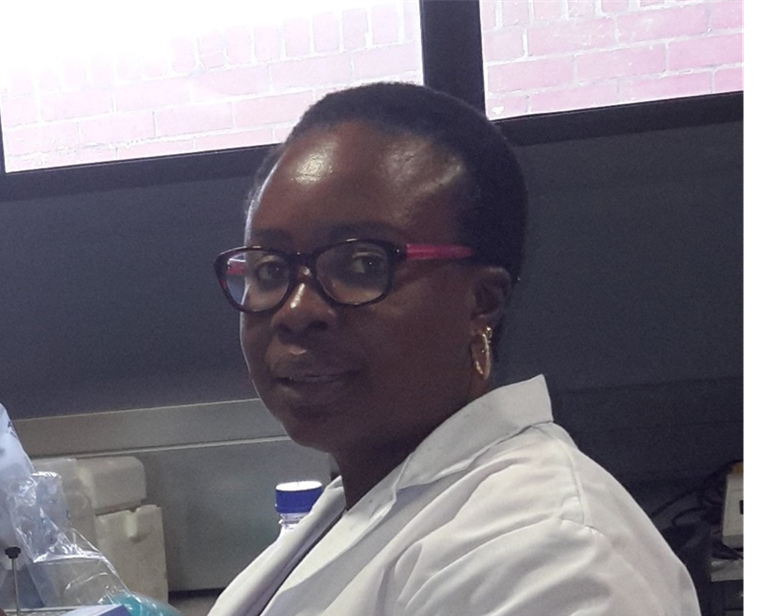 Chioma Blaise Chikere is a Professor of Environmental Microbiology and Biotechnology in the Department of Microbiology, University of Port Harcourt, Nigeria, where she was employed in 2005 as an Assistant Lecturer. She is also the Director, Entrepreneurial Centre, University of Port Harcourt. Prof. Chikere received 2005 Organization of Women in Science for the Developing World (OWSD) PhD Fellowship for split-site programme at the Universities of Port Harcourt and Pretoria, in Nigeria and South Africa respectively. Her professional membership spans notable national and international scientific organizations with active involvement and roles such as Society of Environmental Toxicology and Chemistry (SETAC) Africa (2022 – 2024), council member and recently senior country Ambassador, International Society for Microbial Ecology (ISME) (2022 – 2026). Professor Chikere is happily married to Dr. Blaise Ositadinma Chikere and they are blessed with 4 amazing children.
Chioma Blaise Chikere is a Professor of Environmental Microbiology and Biotechnology in the Department of Microbiology, University of Port Harcourt, Nigeria, where she was employed in 2005 as an Assistant Lecturer. She is also the Director, Entrepreneurial Centre, University of Port Harcourt. Prof. Chikere received 2005 Organization of Women in Science for the Developing World (OWSD) PhD Fellowship for split-site programme at the Universities of Port Harcourt and Pretoria, in Nigeria and South Africa respectively. Her professional membership spans notable national and international scientific organizations with active involvement and roles such as Society of Environmental Toxicology and Chemistry (SETAC) Africa (2022 – 2024), council member and recently senior country Ambassador, International Society for Microbial Ecology (ISME) (2022 – 2026). Professor Chikere is happily married to Dr. Blaise Ositadinma Chikere and they are blessed with 4 amazing children.
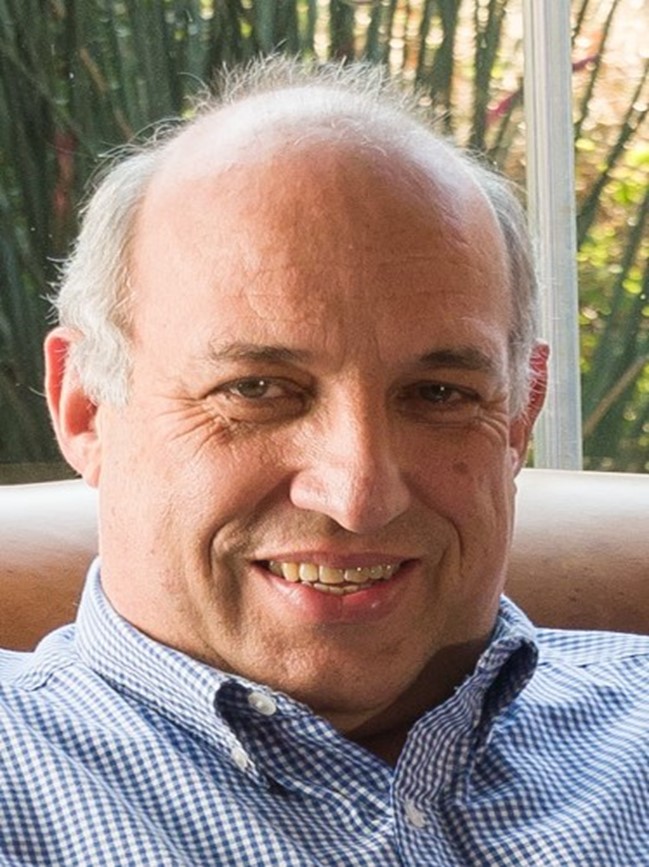 Fanus Venter is a professor in the Department of Biochemistry, Genetics and Microbiology at the University of Pretoria, South. The focus of his research is bacterial evolution, systematics and diversity. Through the use of comparative genomics, his research attempts to understand the functions, biology and evolution of bacteria associated with plants. His current focus related to bacterial systematics is on the nitrogen-fixing rhizobium species isolated from indigenous legumes in South Africa. He is associate editor of the International Journal of Systematic and Evolutionary Microbiology and Systematics and Applied Microbiology as well as guest editor for the Bergey’s Manual of Systematic Bacteriology. He is member of the International Committee on Systematics of Prokaryotes (ICSP) and is part of the organizing committee who was involved in the development and establishment of the SeqCode.
Fanus Venter is a professor in the Department of Biochemistry, Genetics and Microbiology at the University of Pretoria, South. The focus of his research is bacterial evolution, systematics and diversity. Through the use of comparative genomics, his research attempts to understand the functions, biology and evolution of bacteria associated with plants. His current focus related to bacterial systematics is on the nitrogen-fixing rhizobium species isolated from indigenous legumes in South Africa. He is associate editor of the International Journal of Systematic and Evolutionary Microbiology and Systematics and Applied Microbiology as well as guest editor for the Bergey’s Manual of Systematic Bacteriology. He is member of the International Committee on Systematics of Prokaryotes (ICSP) and is part of the organizing committee who was involved in the development and establishment of the SeqCode.
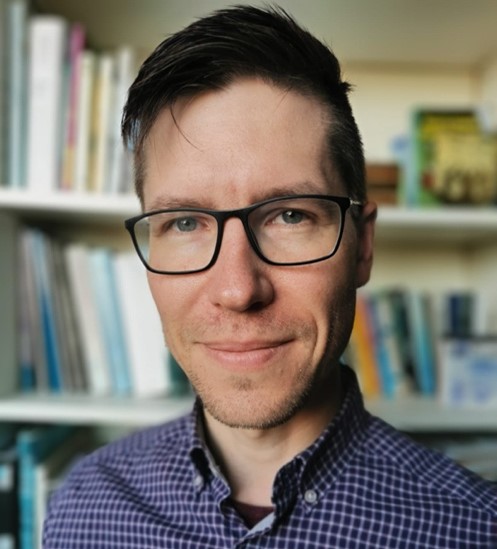 Sigitas Sulcius - I graduated from Vilnius University (Lithuania) in 2008, where I completed both an BSc and MSc degrees in Biology. I then moved to Klaipėda University (Lithuania) and earned a PhD degree in Ecology and Environmental Sciences in 2013. I acquired my post-doctoral training from Linnaeus University (Sweden), Kyoto University (Japan) and Technion – Israel Institute of Technology (Israel).In my research I focus on the diversity and functioning of viruses infecting harmful bloom-forming cyanobacteria in aquatic environments. Me and my team have experience and advanced skills in using various methods of molecular biology, experimental and microbial ecology, next generation sequencing and bioinformatics. We apply these methods to study microbial diversity and food web dynamics in fresh, brackish, and marine ecosystems. We also carried out investigations focused on the analysis of biogeochemical cycles of C, N, S and responses of microbial communities to anthropogenic effects such as pollution and climate change. We are also increasingly working on the developing a good network between scientists and stakeholders.
Sigitas Sulcius - I graduated from Vilnius University (Lithuania) in 2008, where I completed both an BSc and MSc degrees in Biology. I then moved to Klaipėda University (Lithuania) and earned a PhD degree in Ecology and Environmental Sciences in 2013. I acquired my post-doctoral training from Linnaeus University (Sweden), Kyoto University (Japan) and Technion – Israel Institute of Technology (Israel).In my research I focus on the diversity and functioning of viruses infecting harmful bloom-forming cyanobacteria in aquatic environments. Me and my team have experience and advanced skills in using various methods of molecular biology, experimental and microbial ecology, next generation sequencing and bioinformatics. We apply these methods to study microbial diversity and food web dynamics in fresh, brackish, and marine ecosystems. We also carried out investigations focused on the analysis of biogeochemical cycles of C, N, S and responses of microbial communities to anthropogenic effects such as pollution and climate change. We are also increasingly working on the developing a good network between scientists and stakeholders.
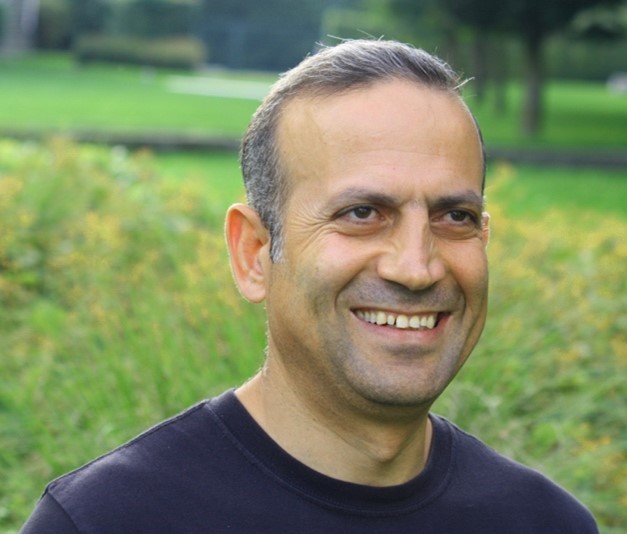 Raeid Abed is a full Professor at the Department of Biology, Sultan Qaboos University (SQU), Oman. He completed his Ph.D. at the Max-Planck Institute for Marine Microbiology (MPIMM) in Bremen-Germany in 2001 on bioremediation of pollutants using cyanobacterial mats. After his Ph.D, he worked for 8 years at the Max-Planck Institute as a research scientist leading different international projects. He obtained several honors such as the Fellowship of Hanse Institute for Advanced studies in Germany, the Best Researcher and Best Teacher Awards at SQU, Oman and an award to establish his own “Research Study Group” in Germany. He was elected as an associate faculty member at the International Max-Planck Research School since 2015. Dr. Abed published more than 95 scientific papers in international peer-reviewed journals, 12 book chapters and edited a two-volumes book. He supervised 9 PhD and 30 MSc students. He serves as a reviewer for more than 40 international scientific journals.
Raeid Abed is a full Professor at the Department of Biology, Sultan Qaboos University (SQU), Oman. He completed his Ph.D. at the Max-Planck Institute for Marine Microbiology (MPIMM) in Bremen-Germany in 2001 on bioremediation of pollutants using cyanobacterial mats. After his Ph.D, he worked for 8 years at the Max-Planck Institute as a research scientist leading different international projects. He obtained several honors such as the Fellowship of Hanse Institute for Advanced studies in Germany, the Best Researcher and Best Teacher Awards at SQU, Oman and an award to establish his own “Research Study Group” in Germany. He was elected as an associate faculty member at the International Max-Planck Research School since 2015. Dr. Abed published more than 95 scientific papers in international peer-reviewed journals, 12 book chapters and edited a two-volumes book. He supervised 9 PhD and 30 MSc students. He serves as a reviewer for more than 40 international scientific journals.
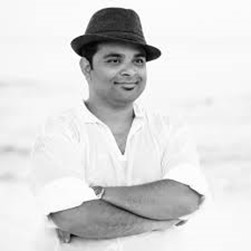 Aashish Jha is an Assistant Professor at New York University Abu Dhabi where he uses genomics to decipher human population histories and microbiomes. His recent work has focused on traditional Himalayan populations and his current research projects include genomics and microbiomics of Nepal, India, Africa, and Oceania. Aashish received his BA in Molecular and Cellular Biology from The University of California Berkeley and his Ph.D. in Human Genetics from The University of Chicago. During his postdoctoral scholarship at Stanford University, he started The Himalayan Diversity Project to study the genetics and microbiome of Himalayan populations. His work in the Himalaya is supported by grants from The Bill and Melinda Gates Foundation and Stanford University Center for Computational, Evolutionary, and Human Genomics (CEHG). Outside of academia, Aashish was the Director of Bioinformatics for NomNomNow, a pet nutrition, and health company and he was a consultant for CDB Consulting, LTD. He joined NYUAD in 2020. Aashish has published two dozen peer-reviewed papers in scientific journals.
Aashish Jha is an Assistant Professor at New York University Abu Dhabi where he uses genomics to decipher human population histories and microbiomes. His recent work has focused on traditional Himalayan populations and his current research projects include genomics and microbiomics of Nepal, India, Africa, and Oceania. Aashish received his BA in Molecular and Cellular Biology from The University of California Berkeley and his Ph.D. in Human Genetics from The University of Chicago. During his postdoctoral scholarship at Stanford University, he started The Himalayan Diversity Project to study the genetics and microbiome of Himalayan populations. His work in the Himalaya is supported by grants from The Bill and Melinda Gates Foundation and Stanford University Center for Computational, Evolutionary, and Human Genomics (CEHG). Outside of academia, Aashish was the Director of Bioinformatics for NomNomNow, a pet nutrition, and health company and he was a consultant for CDB Consulting, LTD. He joined NYUAD in 2020. Aashish has published two dozen peer-reviewed papers in scientific journals.
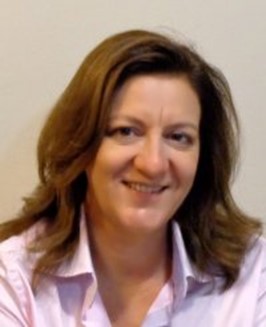 Vivian Pellizari is a Brazilian Antarctic scientist known for her work on establishing Antarctic microbiology in Brazil. Pellizari is the head of Department of Oceanographic Biology at Oceanographic Institute of University of São Paulo. Pellizari’s research focuses on extremophiles, microbiology, and marine microbial ecology in different Antarctic ecosystems. Pellizari has also contributed to the formation of new Antarctic research areas in Latin America including astrobiology, genomics of extremophiles and molecular microbial ecology. She is part of a consortium addressing the topic Aerobiology Over Antarctica, and was part of the National Institute of Science and technology – Antarctic Environmental Research INCT –APA and support projects related with Brazilian National Institute of cryospheric science and technology. Pellizari is the head of Department of Oceanographic Biology at Oceanographic Institute (IO) of University of São Paulo and a member of the scientific committee of Center of Antarctica Research (CPA) at University of São Paulo. The Oceanographic Institute was a pioneer in Antarctic expeditions, being part of the Brazilian Antarctic Program since the first expedition in 1982. Pellizari has been part of the program since 1996 and first worked in Antarctica in 1997. Pellizari has been involved in the organisation of public outreach events to share information about the Antarctic environment at schools; scientific fairs and public places as parks (Vila Lobos Park) and subways in the city of São Paulo.
Vivian Pellizari is a Brazilian Antarctic scientist known for her work on establishing Antarctic microbiology in Brazil. Pellizari is the head of Department of Oceanographic Biology at Oceanographic Institute of University of São Paulo. Pellizari’s research focuses on extremophiles, microbiology, and marine microbial ecology in different Antarctic ecosystems. Pellizari has also contributed to the formation of new Antarctic research areas in Latin America including astrobiology, genomics of extremophiles and molecular microbial ecology. She is part of a consortium addressing the topic Aerobiology Over Antarctica, and was part of the National Institute of Science and technology – Antarctic Environmental Research INCT –APA and support projects related with Brazilian National Institute of cryospheric science and technology. Pellizari is the head of Department of Oceanographic Biology at Oceanographic Institute (IO) of University of São Paulo and a member of the scientific committee of Center of Antarctica Research (CPA) at University of São Paulo. The Oceanographic Institute was a pioneer in Antarctic expeditions, being part of the Brazilian Antarctic Program since the first expedition in 1982. Pellizari has been part of the program since 1996 and first worked in Antarctica in 1997. Pellizari has been involved in the organisation of public outreach events to share information about the Antarctic environment at schools; scientific fairs and public places as parks (Vila Lobos Park) and subways in the city of São Paulo.
--------------------
▼News from February 2022
The past few months have been a little quieter than usual in the Ambassador Program, likely a consequence of the hectic lead up to the end of the year combined with ongoing disruptions to work life and meetings due to the COVID-19 pandemic.
Regardless, we have seen a number of promotional, networking and training activities including the completion of the Blue Think conference led by Dr. Rodrigo Costa, our Ambassador in Portugal, and two computational biology workshops for metagenomic analysis run by Prof. Rup Lal, our Ambassador in India. We have also supported a number of initiatives for 2021 including workshops on 'Phylogenomics' in Costa Rica, 'Amplicon and Metagenomic Sequencing' in South Africa and an ISME regional meeting in Africa scheduled for August 2021.
Members, the ISME Ambassador program exists to help our diverse membership grow the field of microbial ecology and expand the reach of ISME globally. Please take a moment to check out the activities on the ISME website and familiarise yourself with the Ambassador for your region, as the first point of contact for ISME support of local initiatives.
We thank the Ambassadors for their efforts throughout 2020 and wish you all the very best for 2021.
